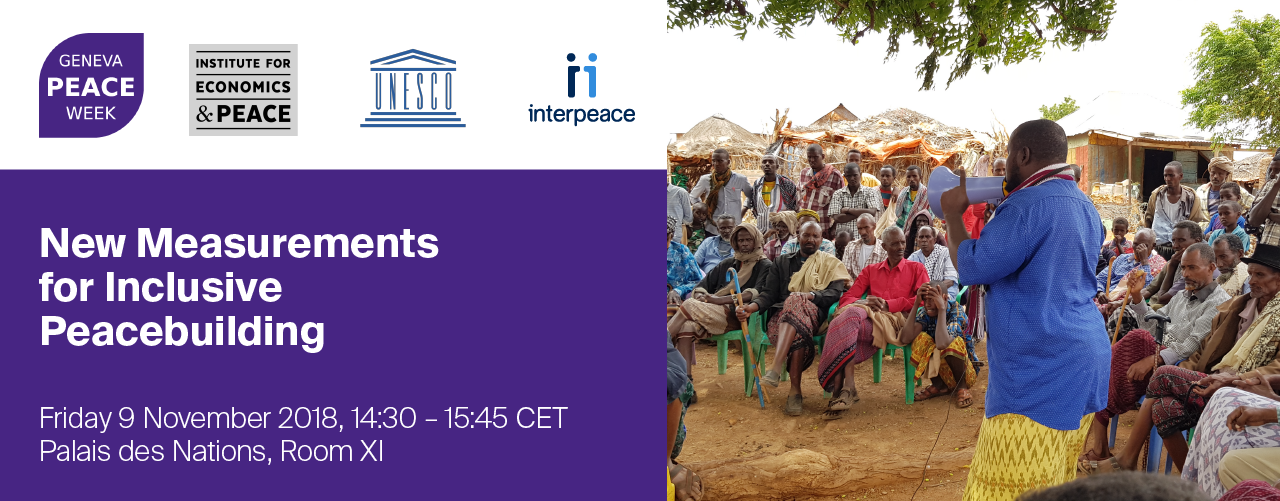New measurements for inclusive peacebuilding

Description
There remains a lack of policy and practice-relevant data measuring the capacities of societies to facilitate dialogue for peacebuilding. This data gap was highlighted in the 2017 UNESCO Member State Survey on Intercultural Dialogue, as well as in the current academic literature. UNESCO and the Institute for Economics and Peace have joined forces to create a global corpus of data measuring the presence and efficacy of the different dimensions of the ‘enabling environment’ for dialogue to become a more effective standard and instrument for peacebuilding in the future. The research is intended to give guidance for direct inputs by UNESCO Member States that can stimulate dialogue processes towards addressing deeper inequalities, uneven power dynamics, and support efforts to promote favourable structural conditions between and across groups. One of the universal enabling factors already identified relates to the concept of inclusivity. This refers to the involvement of a wide range of stakeholders that is key in dialogue processes to achieve peacebuilding goals.
Inclusive change is a process that requires a constant review of risks, trade-offs, opportunities and benefits of including different groups’ agendas at different stages in the transition to peace. IEP’s latest 2018 Positive Peace research findings on inclusivity underpins the need for different peacebuilding approaches based on the political, economic and social inclusivity context within a country. The session will examine several positive peace trends in countries that have experienced some of the largest improvements or deteriorations in peace and it will bring to the surface the levels of inclusivity that contributed to their deterioration or improvement. It will end with more programmatic country level insights from the dialogue programs run by Interpeace.
Experts of IEP, UNESCO and Interpeace invite audiences to give input on how the two studies can inform more coherent top-bottom strategies for peacebuilding and shed some light on potentially new roles actors can play to foster true inclusivity. A discussion afterwards will address the following key questions:
– What should inclusive top-bottom peacebuilding strategies look like and what actors should be involved and how?
– What are the bottom-up approaches missing, what would be useful and how can these kind studies assist in producing a set of common guidelines?
– What are the aspects that need to be considered, at different levels, to enable the development of the skills needed for intercultural dialogue to flourish?
– Is there a need to define inclusivity further, perhaps based on the intended peacebuilding goal and around who are actually excluded? How can this be best measured?
Register to attend the event by 8 November.
If you do not have a valid UN badge, in addition to your registration to the event itself, you will need to register for a Geneva Peace Week pass to access the Palais des Nations.
Register to access the Palais des Nations
Organizers:

